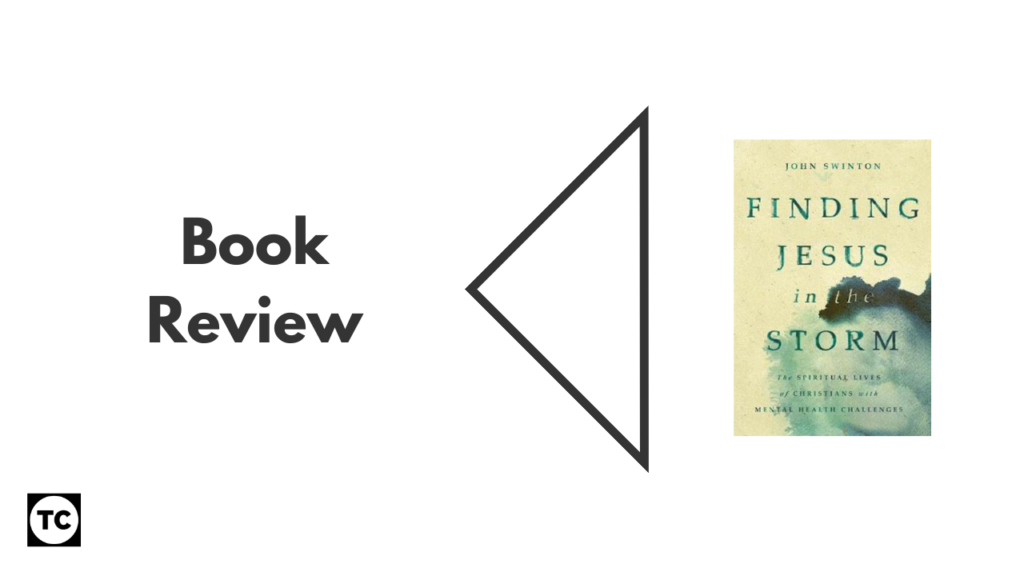
Reading books about mental health and faith, as someone with a slightly broken brain and a deep faith, is a mixed bag. They can be awful, they can be excellent, and they can be somewhere in between. Reading Christian books when you work in the making of Christian books can also be a mixed bag. So it was with a hopeful trepidation that I bought a copy of John Swinton’s latest book. I’m still not quite sure what I think about it, but it contains one of the best chapters/pieces of writing on depression, the Mental Health problem I’m most familiar with, and so I’m glad I read it.
Swinton may need no introduction to some – to others, he may. Swinton is professor of practical theology and pastoral care at Aberdeen – and has a particular interest in disability theology, and a background in nursing with particular focus on mental health and learning disabilities. This book echoes these concerns – drawing on a study (conversationally, it seems) of people of faith who also live with severe mental health issues. This conversational approach is a strength of this book in allowing people wrestling with their thoughts to use their own words, but it is also a weakness overall in my opinion as it is ultimately a book that is more descriptive than theologically directive. There is of course a place for that – but I would have loved to have seen Swinton stretch his dogmatic muscles and offer a deeper theological framework and telos for mental health. There are hints of this, particularly in the chapter on ‘healing’, but it isn’t all there.
On, though, to the chapter on depression, which is one that I think I will return to, and overall tips this book from merely another book on mental health, to one that I would recommend to pastors, particularly anyone with the unfortunate privilege of pastoring me. It is actually two chapters, making up one part, ‘Lament and Joy’ and ‘Finding God in the Darkness’. The latter has profound echoes of the narrative of Mark Meynell’s superb When Darkness Seems My Closest Friend. The words of the sufferers in this section are beautiful – although never quite reaching the haunting beauty of Sharon Hastings’ Wrestling With My Thoughts – but it is here that Swinton gets closest to offering real and good and beautiful and true theological reflection, in my opinion. I quote at length:
“Authentic worship requires honest.y The chief end of human beings is not to be happy. It is the glory of God… Lament demands a mode of liturgical inclusivity that does not insist that happiness and a lack of anxiety are the hallmarks of the presence of God. Lament puts the lie to those who insist that ‘praying harder’ will bring blessing, with blessing defined as a release from our present sufferings… Lament is a practice that the body of Christ must together in times of happiness and tragedy so that it can deal faithfully with times of sadness, brokenness, and disappointment. There are plenty of things in the world to lament. The door to the school of lamentation is wide open… Lament is something we do together. So also, and perhaps oddly, is joy…“
This part/pair of chapters made me laugh, regularly, and also in a few quieter moments, cry. It is written in a profoundly human way, with Swinton’s faith clearly underwriting and informing both his connections of and responses to the words of the sufferers whose stories he hears. It is theological writing at it’s most practical best.
And the practical nature of this book is something else that makes it a meaningful recommendation for those in pastoral ministry, or looking to reflect theologically on mental health and faith. This is a book that covers more than just the ‘common and garden’ combination (That I live with, so I can call it common) of depression and anxiety. Swinton carefully and compassionately covers ‘Depression’, ‘Hearing Voices’ and ‘Bipolar Disorder’ in depth – carefully interrogating medical description, personal testimony, and emerging theological reflection. He closes with probably the next best part of the book – his conclusion, ‘Redescribing Healing’, with particularly helpful reflections on the role and importance of truth telling in relation to healing as well as resetting things to what is an ultimately eschatological view of healing: “to be healthy is t one in right relationship with God regardless of one’s physical or psychological state… Health is therefore not an ideal, a concept, or a humanly achievable goal. Rather, it is a person.” Swinton points us to Jesus, and even though there are places where I wonder where else he is pointing, this is a vital heartbeat of the book.
I enjoyed Finding Jesus in the Storm. There were parts of it, the strongest part in my mind, which was hard to read – because of what I have experienced and lived with, in and as a result of my mind. This is a powerful and important book, and whilst it isn’t perfect, I’d recommend it. It is, however, at least in part a slightly more academic book than others – and so for those who are perhaps encountering mental health and faith for the first time, I’d probably point to the aforementioned books by Sharon Hastings and Mark Meynell, and then come back/on to Finding Jesus in the Storm. As a closing point, I mentioned to someone who works at SCM that most recent years some of the best books and some of the worst books I’ve read are from that press – this would prove that adage, because even where I disagree or quibble, it is a very good book.
Leave a Reply